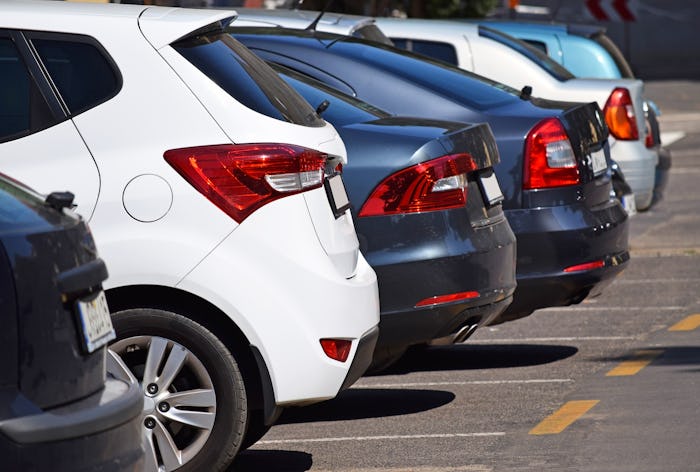Life

7 Ways To Prevent Hot Car Deaths
Even though it sounds inconceivable, there was a time when parents would regularly leave their children in the car alone. Whether it was to run into the grocery store or just because the parents didn't want to interrupt their nap, it happened more often than you would imagine. Although today's parents have more information about the risks associated with leaving a child in a parked car, it is still important to review the ways to prevent hot car deaths.
In an interview with No Heat Stroke, consulting meteorologist Jan Null said that between 1998 and 2017 706 children have died of vehicular heat stroke — six already in the year 2017. This is an average of 37 child fatalities per year related to hot cars. Additionally, Kids and Cars, a nonprofit organization focused on improving child safety around cars, reported that between 1990 and 2015, 55 percent of children who died in a hot car were unknowingly left alone and 28 percent of kids got in the car alone. That's far too many fatalities from something that can easily be prevented.
As the temperatures start to rise and car trips become more frequent, here are a few ways you can help prevent hot car deaths.
1Always Look In The Back Seat
In an interview with the Today Show, president and founder of Kids and Cars Janette Fennell suggested that all parents get into the habit of looking in their back seats before locking car doors. Do this even when you aren't driving with your children so that it becomes a habit. It's not uncommon for parents who become preoccupied and temporarily
2Leave Something You Need In The Back Seat
Instead of putting your purse, briefcase, or gym bag in the trunk or passenger seat, leave it in the back seat to remind you that you are traveling with a child. USA Today recommended going one step further and keeping your left shoe in the back seat. People don't always travel with briefcases or purses, but they always have on a shoe.
3Check In On Anyone Driving With Your Child
Anytime someone else is driving your child around, and especially if their routine is altered in any way, call to make sure they have reached their destination and that your child is safely out of the vehicle. According to KREM 2 a CBS station in Spokane, many of these kinds of accidents happen when a caregiver's routine is disrupted.
4Have An Absentee Plan With Your Daycare
Fennell recommended setting up a plan with your childcare provider to immediately contact you if your child does not show up as scheduled. Many times these accidents happen when a parent goes straight to work forgetting that they have to drop the baby off at daycare.
5Don't Assume Cooler Weather Is Safe
Car deaths don't only happen in the middle of summer. According to the Stanford Medicine News Center, researchers Catherine McLaren and James Quinn found that a car's interior can heat up by 40 degrees within an hour, regardless of ambient temperature. Up to 80 percent of the temperature rise happens within the first 30 minutes. According to Kids and Cars, children have died from heatstroke in cars in temperatures as low as 60 degrees. Even leaving your child alone in a parked car for a few minutes can have deadly consequences.
6Keep Car Keys Away From Small Children
Make sure your cars are always locked and put the keys where kids can't reach them. Children are inherently curious and have been known to sneak into cars to play. The temperature can rise quickly causing them to become disoriented and pass out before a parent finds them. In an article for TIME, Fennell suggested that if a child goes missing, vehicles and car trunks should be checked immediately.
7Take Action
If you ever come across a child alone in a car, immediately call 9-1-1. Safe Kids Worldwide noted that young children's bodies heat up three to five times faster than adults', and cracking a window doesn't help. Don't second-guess getting involved. Emergency personnel is trained to handle these kinds of situations and would rather respond to a false alarm than a fatality.